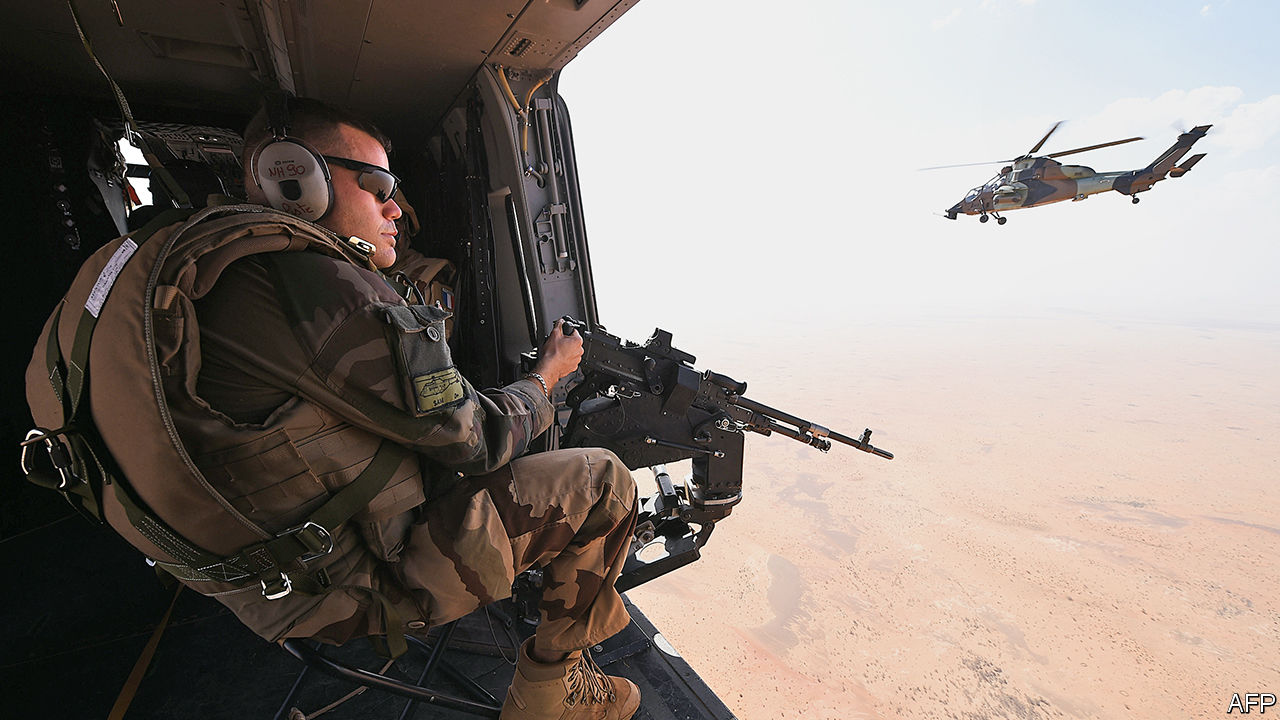Sahel or high water
France may take the lead in fighting jihadists
But they risk propping up authoritarian regimes
 ATLANTIC
ATLANTICThe French-led operations have attracted less attention than has AFRICOM, America’s military command for Africa, which conducts raids and drone strikes from Somalia to Libya. Yet France’s role in the region is growing in importance, particularly as America has been considering withdrawing most of its special forces from Africa since four soldiers were killed in Niger a year ago.
Barkhane costs the French taxpayer some €600m ($700m) a year. It is made up of 4,500 soldiers fighting Islamist groups in Mali and, to a lesser extent, in Burkina Faso and Niger. Its zone of operations is nearly as big as western Europe. Twelve Barkhane soldiers have died since 2014.
Apart from its own counter-terrorism operations, France is an “organiser and co-ordinator” for other forces in the region, says Christian Cambon, president of the French Senate’s defence committee. This is apparent at the base in Niamey. Behind high walls French troops lob boules in a game of pétanque or play table tennis. German troops drink in the bar. An American airbase is next door; another is being built in Agadez, to the north. France also helps the G5, a regional counter-terrorism force comprising troops from Burkina Faso, Chad, Mali, Mauritania and Niger, and bolsters the large UN force in Mali.
General Bruno Guibert, Barkhane’s former commander, recently said that French forces had killed or captured 150 jihadists this year alone in Mali and Niger. More important, they have kept the jihadist groups scattered and denied them territory for more permanent bases.
Yet France’s approach also has its limitations. The French “are very directed at targeted killings right now,” says Andrew Lebovich of the European Council on Foreign Relations, a think-tank. Barkhane has excellent ground-level intelligence, he says, but it is sometimes less good at strategy. For example, the French have made alliances with ethnically based militias in Mali that have tarnished Barkhane by association, by allegedly massacring their enemies or getting the French to assassinate rivals in their own camp. General Guibert says his zone of operations is so big that his troops cannot be everywhere. “Barkhane”, he admits “won’t bring victory. It is only politics that can do that.”
If Barkhane had not been set up in the Sahel, jihadists would almost certainly have been able to consolidate their forces and take more territory. But an unintended consequence of the operation is that it is helping to prop up authoritarian regimes. The French are damned if they do send troops, damned if they don’t. They are not the first to find themselves caught in an anti-insurgency trap.
